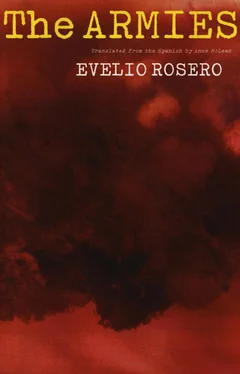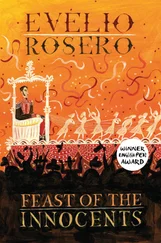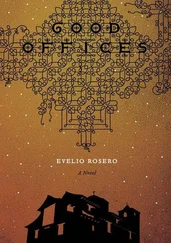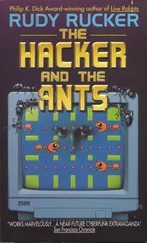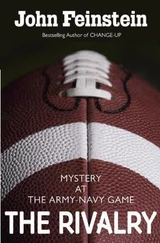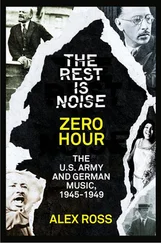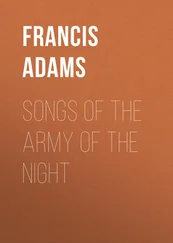“And I am not, am I?”
She looked at me, alarmed.
I got out from under the sheets; I had fallen asleep fully clothed. Sitting on the edge of the bed, I remembered that I was an old man when I bent over to look for my shoes: my clumsiness and a sudden sharp jab in the back paralyzed me; she passed me my shoes, in the nick of time, because I could have fallen. I remained with my shoes in my hand; now would I not be able to put them on? Of course I would: Geraldina, Geraldina in my bedroom, waking me up, her apparition.
“You sleep under blankets”—she was astonished—“and so many. Don’t you burn up with this heat?”
“Old age chills a person,” I told her.
I imagined her sleeping, in spite of myself: naked, with no covers.
“Come and have breakfast with us, profesor , why do you never want to come and visit us anymore?”
Why do I not want to? I do not know the answer, because I do not manage, or do not want, to confront it. I proceed behind Geraldina, trying in vain not to recognize her besieging scent, my eyes involuntarily exploring her black-clad back, and catching a glimpse, beneath the mourning, of her legs, her sandals, the radiant movement of her body, her whole life diffusing and proclaiming, beneath the veils of fatality she is suffering in this world, the perhaps inclement desire to be possessed as soon as possible, albeit by death (by me?), to forget the world for one moment, albeit for death.
For me.
Thus we proceed in silence, skirting the empty pool, dirty with orange peel and pips, bird shit. I close my eyes for a second, because I do not want to remember Geraldina naked, because this must be why, more than anything, I do not want to see her; it pains me, exhausts me, hopeless in the midst of Otilia’s disappearance, to witness that my mind and my body are moved and suffer for the mere presence of this woman alone in the world, Geraldina, her voice or her silence, although dressed in mourning, saddened, darkened — when it is supposed that her husband has not died.
We sit at the table, before a dazzling china dinner service; sunlight fills the kitchen. I suddenly discover Hortensia, Marcos Saldarriaga’s wife, there waiting for us, like the continuation of the nightmare: she sits at the head of the table, and, from the outset, speaks to me in such pitiful tones, and sighs so much that now, too late, I regret having accepted the invitation to breakfast.
“Take care, profesor ,” she says, “not to be as untidy as this when Otilia comes back.” She stares at me for a moment: “Because God will help her to come back. If Otilia had died, they would have found her by now. That means she’s still alive, profesor , everyone knows that.” She reaches out and rests her small, fat, very pale hand on mine for an instant. “Look, I’ll be frank with you: if they took my husband, who could not even walk he was so fat, twice as fat as I am”—here she smiles, upset—“then why couldn’t they take Otilia, who wasn’t, or isn’t, pardon me, so old or so fat? Wait for news, it will come, sooner or later. They’ll tell you how much they want. But while you wait, pay some attention to yourself, profesor . Why don’t you cut your hair? Don’t lose faith, don’t forget to eat and to sleep, I know what I’m talking about.”
The meal is served; it does not seem to be a normal breakfast, but rather lunch and dinner. The boy sits beside me, a faraway look in his eyes, gestures of the living dead: this is more terrible to see in him because he is a child.
Geraldina shows me the table.
“Look, profesor . Hortensia brought us these lobsters.”
“Lobsters that were given to me,” says Hortensia, as if excusing herself, and I see her mouth is watering. “They’re a memento of a lunch with General Palacios. He was sent one hundred and twenty live lobsters for his birthday. Shipped from Canada, alive. I expect they traveled first class.”
“And there’s plátano aborrajado, profesor ,” Geraldina interrupts. “I made this dish. You know, profesor , it’s made with very ripe plantain, so black they ooze syrup; you fry them after filling them with cheese and dipping them in a batter of egg, milk and flour …”
“Just a black coffee,” I say to Geraldina, “please.”
I do not know what these women are talking about. I have not the slightest appetite. The only excuse I can find to hide my weariness of everything and everyone is to direct my attention to the boy, pretend to be concerned about him. After all, has my life not been spent surrounded by children, doing battle with them, sharing their sadness and their joy? Now I find myself with him. I remember him rolling around in his garden: he must have some memory of games, of happiness, why does he not speak? Enough time has passed. Is he not being spoiled, now? Would a reprimand not do him more good, a shout at least to wake him from his fantasy? He holds a piece of pineapple nougat, which he is about to eat. He has filled out again, he is as fat as he used to be, or maybe fatter.
I take the nougat out of his hand, to his great surprise, to his mother’s surprise, and say to him: “What about Gracielita, where is she?”
He looks at me in shock, at last he looks at someone, I think.
“Now then,” I say, putting my face almost on top of his. “It’s your turn to talk. What has become of Gracielita, what happened?”
The mere mention of Gracielita’s name shakes him. He looks me in the eye, he understands me. Geraldina stifles a cry with her hand. But the boy still does not say a word, though he does not stop looking at me.
“And your father?” I ask him. “What happened to your father; how was he?”
The boy’s eyes fill with tears: now all we need is for him to cry, and yes, it would be best, the lamentable excuse to get away from this ludicrous table. Then the child looks at the very fat Hortensia Galindo, who has paused, her hand on one of the lobsters. Then he looks for his mother, and finally seems to recognize her.
Then he says, as if he had learned it by heart:
“My daddy told me to tell you that we should both leave here that you should gather everything up and not wait one day that’s what my daddy told me to tell you .”
The two women gasp.
“Leave?” Geraldina is shocked. She has circled the table to come and hug her son. “Leave?” she repeats, and buries her face, her sobs, in her son’s chest. But then she appears to think it over, while she looks at Hortensia and at me. She finds, surely (I see it in her hopeful eyes), reasons, and permission, to leave. “Thank you, profesor , for getting him to speak,” she stammers, and weeps without untangling herself from her son, which does not keep Hortensia from starting to eat.
I find the coffee pot. I pour myself a cup. I have waited a long time for this moment.
“Do you remember me?”
The boy nods. This time it is I who has a sinking feeling inside.
“Do you remember Otilia?”
He looks at me again as if he did not understand. I am not going to give up.
“You remember her, she gave you a coconut biscuit one morning. Later you came back and asked for another and she gave you four more, for your father, your mother, Gracielita, and the last one for you. You remember, don’t you?”
“Yes.”
“So you remember Otilia, then?”
“Yes.”
“Was Otilia there where they took your father? Was Otilia with Gracielita, with you, with the hostages?”
“No,” he says. “Not her.”
The silence around us is absolute. My eyes stray unbidden to a lobster, encircled by rice, slices of plantain. I apologize to the women. I feel the same nausea as when I came down from Maestro Claudino’s cabin. I go back through the garden to my house, to the bed they had got me out of, and I stretch out on my back, as if I were ready to die, now, and alone, fulfilled, although the Survivors meow beside me, curled up on top of the pillow.
Читать дальше
